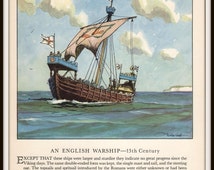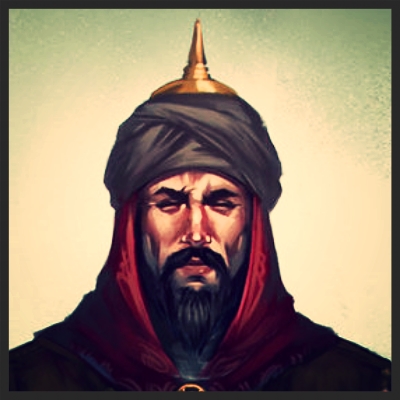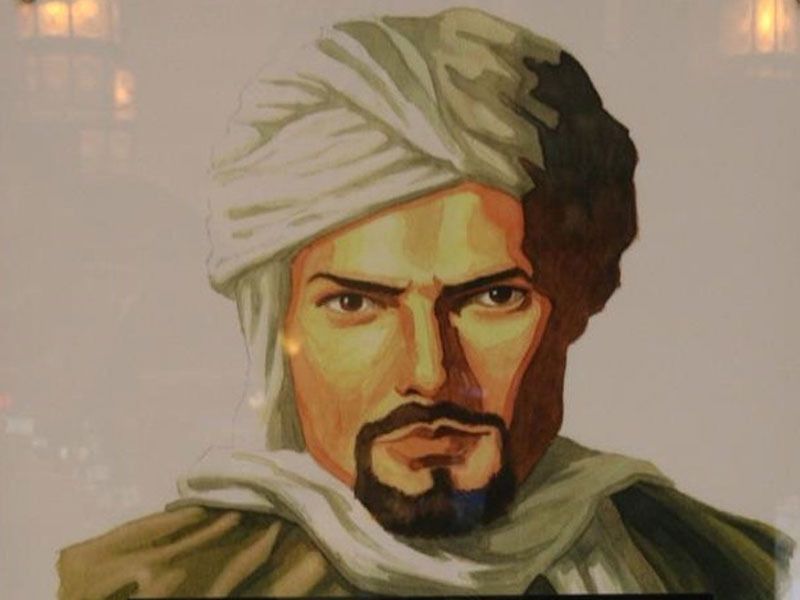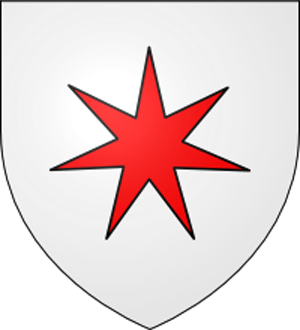Shadow of Gods and Empires
#Shadows
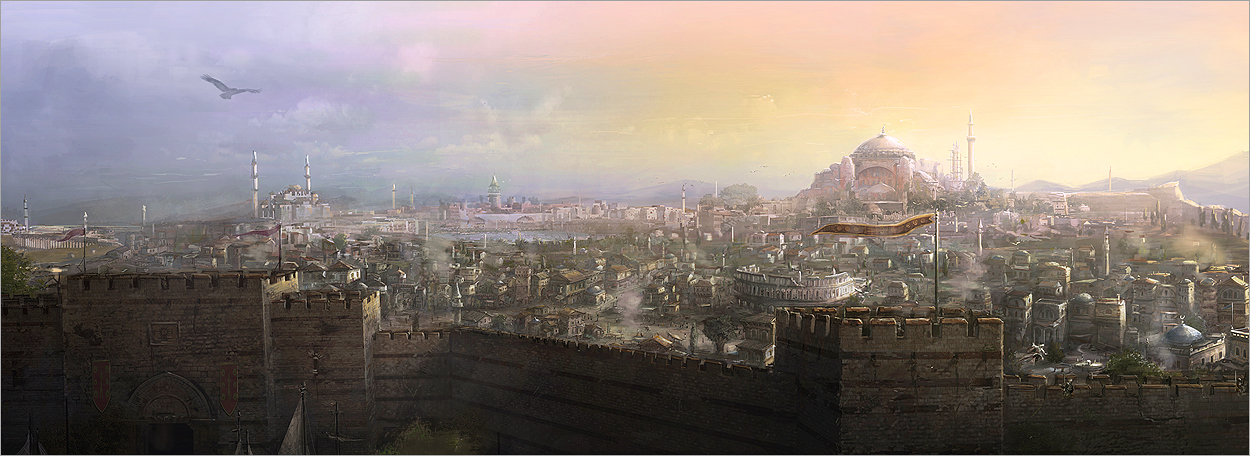
"True power lies not with Emperors nor Gods, but with those who profess to speak for them."
~ The Night King
#Shadows

"True power lies not with Emperors nor Gods, but with those who profess to speak for them."
~ The Night King
Act I
Chaos Reigns
* * * * * * *
Divining Chaos
Return of the Old Guard
The King of the Godseye
The King of the Godseye Pt II
Return of the Old Guard Pt II
Hunger Pangs
Scourge of the Godseye
Summer's Strife
Chaos Reigns
* * * * * * *
Divining Chaos
Return of the Old Guard
The King of the Godseye
The King of the Godseye Pt II
Return of the Old Guard Pt II
Hunger Pangs
Scourge of the Godseye
Summer's Strife
Welcome to Wuldbreach, the shining jewel of the Shattered Isles, the most populous city in all Tha'Wuld, and the envy of kings. It is here where Orlanth the Storm God banished the One-Eyed God, where Hydra laid with the Wuld Mother and She berthed the sea, and where Issiris gifted mortals speech. Wuldbreach is the holiest city in all the world, where the disciples of each God vie for dominance, and where elite princes of Wuldbreach rein.
Shadow of Empires is a sort of political simulator/role playing game, where the players fulfill the role of the Seven Princes of Wuldbreach, a council of rulers from among the nobility of the city. The princes shape the destiny of the city, protect it from both external and internal threats and strive to realize their own ambitions and that of their people's. Wuldbreach, or Breach as it is commonly referred to, is a melting pot of cultures and religions, and as such is subject to continuous strife as both church and empire attempt to exert influence over the city.
Anyone may sign up as a noble, however only seven will be chosen to sit on the council as a prince, the remainder remain nobles and may still send orders and are welcome to IC and petition and advise the council and may be awarded honorary titles or commands, such as military commanders or emissaries. In the event a prince is killed or voted off the council, a new one will be voted in from among the nobles.
Before we delve too deeply into the mechanics of the game, it is important to understand the lore and history of the world, as acting out of ignorance of your people's customs will lead to disaster.
The Age of Mythos
Countless years ago, the Gods lived upon Tha'Wuld among the mortal races. They guided the destinies of Men, Mer, Dwarves and beastfolk. Though a time of plenty, there was strife among the Gods as they clashed to exert their dominance. Chief among the Gods was Oranth, who wielded the power of storms, Issaris who sought diplomacy and trade, Wuld Mother who desired peace to nurture that which grows, Hydra, who desired balance above all things, and the One-Eyed God who stalked the shadows.
Though there are many lesser deities, the above five wielded the greatest power and influence. Though feuds and squabbles between the Gods persisted throughout the age, it culminated in the uprising of Demos, the lesser brother of Oranth. Committing kinstrife, a deplorable crime, Demos attacked his brother and led a war against him.
The armies of the two brothers fought all over the world, until Demos used powerful magic to entomb Oranth in a mystical vial; The Glass of Narsil. Issaris called the Gods together to mount an effort to free Oranth and tame the storms that now terrorized the world without Oranth's guidance.
During the battle of Storms, the treachery of the One Eyed God was revealed when he blinded Hydra and spirited the Glass of Narsil unto a higher plane. Demos, captured, confessed he had been tempted by the One-Eyed One and swore to atone for his crimes.
At the Godswell, the sight of Wuldbreach, The One-Eyed God was cornered by the other Gods. Demos managed to free Oranth from the Glass of Narsil, but at great cost, sacrificing himself in the process. As Oranth calmed the raging storms, the Godswell became corrupted and demons from another plane flooded into the world. In a last effort to defeat the other Gods, the One-Eyed One invited the agents of chaos through the Godswell, forever condemning the world to misery and strife.
Oranth was able to rally the other Gods, and drove a wedge deep into the forces of chaos. At the Godswell He banished the One-Eyed God from Tha'Wuld. Despite this victory, chaos still spread over the world, threatening the Gods. Facing extermination, the Gods escaped through the Godswell, seeking refuge in higher planes and leaving the mortal races to their fate.
Age of Chaos
For thousands of years chaos plunged the world in darkness, where the mortal races fought the demons and each other. Mortals forgot the teachings of the Gods, and in doing so emboldened chaos and the beastfolk that followed them. War and kinstrife were common place and life was full of misery.
Near the twilight of the age, the heroic king Asterban united a dozen clans into a single tribe and brought together great relics of the past, piecing together the lessons of the Gods and waging a successful war against chaos, breaking their power.
Asterban liberated the Godswell from the beastfolk, and in doing so was able to communicate with the Gods once again, where he was gifted great magic to tame the world. Though Asterban brought magic back to mortals, some were envious of his station, and he was betrayed by Woden, his disciple. A guest in Asterban's hall, Woden kissed his mentor before stabbing him in the back, taking his kingdom for his own. Woden's betrayel was a grim reminder that even with the magical power of the Gods, chaos was ever a constant threat. Consumed by guilt, Woden took his own life and Asterban's kingdom collapsed shortly after.
Age of Kings
Following the example of Asterban, other kingdoms rose up from the ashes of chaos. Political upheaval marked the age as kings rose and fell, boundaries shifted, and the foundation of empires were built. Like the ages before, war was a constant threat, contributing to the rise and fall of many kingdoms, though the defining conflict of the age was the War of Caleb's Cross. King Caleb, dawning a cross, a symbol of the four great Gods, Wuld Mother, Oranth, Issiris, and Hydra, waged a war against the beastfolk of Chaos that infested all the lands. Calling many allies and even enemies to his banner, Caleb waged a fifty year struggle against the Beastfolk Chieftains.
For all his military prowess, Caleb suffered from arrogance, and burned his ships upon landing at Crucible, the wasteland home of the Beastfolk. When grumblings among his honorguard voiced dissention and retreat, King Caleb set his ships aflame, resigning his army to face the Beastfolk stronghold with no hope of escape or retreat.
After a series of defeats, King Caleb was slain, his body quartered by the Beastfolk and cursed with terrible necromancy magic. His undead corpse guards the northern shore of Crucible even today, wailing a terrible warning at any ship that thinks to land upon the Beastfolk home. Despite his final failure, Caleb did succeed in driving the chaos forces from the continents save one; Crucible.
Age of Empire
Age of Empire is the current age we find ourselves in. Beginning upon the corresponding conquests of Xilah the Pharaoh and Thurod White-Eye. As well as the peace pacts that brought the Wuld Alliance together under the guidance of the Elfking Ulyss the Peacemaker. For the first time, governing bodies that encompassed multiple kingdoms now waged trade, diplomacy and war.
Centuries later the Empire of Gothra would be formed after a series of conquests and pacts. These four empires, each raising a patron God into chief worship, struggle to coexist, often feuding and warring. Though the scope of influence between these great powers is vast, there are some who manage to thrive independent from imperial machinations...
The Free Cities
Between the Continents of Alauria, Ethheim, and Crucible lies the Shattered Isles, a circular chain of islands in a turbulent sea. The often violent waters have offered great protection to the island inhabitants from the ambitions of the empires and allowed multiple independent city-states to thrive.
Deep within the holy mountain of Kinwrath, the Dwarven undercity of Heartstone plunders the Wuld's crust for great riches.
Within the forests of Greyspear a treetop city of Elven exiles prosper.
Brigands and beastfolk alike pay homage to the One-Eyed God in the dark city of Bloodshed.
Along the rocky shores of Windgultch, Oranthi worshippers erect strong towers of stone to stave off the forces of empire.
Great Canton houses Isirris worshippers within a great pyramid, yearning to trade and be free.
Urnox, a city of hunters and ancestor worshippers roam the sea for game when Wuld allows.
Then there is the jewel of the Shattered Isles... Wuldbreach.
A Brief History of Wuldbreach
Before the arrival of the Heroic King Asterban, Wuldbreach was inhabited by Beastfolk, though all have long since been driven off the island. The oldest families claim ancestry from Asterban himself and his followers, a mix of Hydra, Issaris and Oranth worshipping humans who now make up a minority.
Asterban's clansmen were later conquered by Oranth worshippers who built a fortress to protect the Godswell and assert Oranth dominance throughout the world. Yet as the age of kings wore on, followers of every sect would take the holy sight, adding on to the fortress until a great city was formed.
As the disciples fought for the well, Bisrod the Chaste sacrificed to Issiris and learned the path to peace. He formed the Council of Princes and representatives of each of the chief Gods ruled the city.
As the Age of Empire dawned, the council grew corrupt. It grew to include seven princes instead of four, and equal representation of the Gods was no longer sought. Several princes rose to power over the decades, declaring themselves kings. Some were benevolent, others corrupt.
One such king rose to power five hundred years ago. Known only as the Night King, he launched a citywide assassination of his enemies all within an hour. Raising himself from prince to king, The Night King rounded up priests of the Gods and sacrificed them upon the alter of the Godswell, shedding blood in the name of the One-Eyed God. Beastfolk sailed to the city, granted entrance by the Night King and swelling his army and killing and raping the inhabitants unfortunate enough to cross them.
In the name of the Wuld Mother, The Wuld Alliance invaded breach and cast down the Night King after a long and bloody battle. The Beastfolk were driven into the sea and the Night King was hung from the city ramparts. Alliance soldiers were hailed as heroes until their intention of seizing the Godswell was realized. A rebellion followed and the elves retreated, allowing a council of princes to once again restore order.
More recently was the Arrogant King Harodi, who waged a war on the Gothra Empire, keen to forge an empire of his own. The early years of the war went well, and much of empire fell to the forces of Harodi. However, as the Goth Emperor brought more of his forces together from across his vast empire, his army soon dwarfed the lesser forces of King Haroldi.
Haroldi was slain and the Imperial army invaded Wuldbreach. The keepers of the Godswell hold great power and succeeded in driving out Gothra's forces time and time again, though much devastation occurred. Both sides crippled and exhausted, they brokered a fair peace. That was thirty years ago.
History is rife with examples of fueding and outright war between the princes and nobles alike. Noble houses, often in competition for trade and resources, continually feud and openly fight for perceived slights. Unlike the nobility of Gothra or Issira, nobility is not viewed as a blood right, but rather attributed to wealth. Though it is typical for noble families to carry wealth through their family line, once that wealth is diminished, their social standing lowers as well. This system fosters a fierce competition among the power-brokers of the city.
A year ago, a series of unfavourable trades and laws against the embattled Prince Mankar led him to declare the Council of Princes defunct, and called war upon his rival, Prince Esteban. Although most sided with Esteban, Mankar was able to rally the commoners to his banner, and lured Esteban into a trap at Hightop Square. The trap sprung and Esteban and his entire honorguard were slain.
Several other princes were killed in the fighting that followed, while others fled. The unrest leaked into the priesthood as Godsmoot drew near, and there was no clear council to declare a ritual. Godsmoot was the grand ritual where sacrifices were given unto the Gods atop the Godswell, the most sacrifices to the Chief God would incur His blessings over the world and embolden Their magic. As the disciples of the Gods fought before the Godswell, Godsmoot passed by, and no ritual was performed. Thus, magic emboldened Chaos, evident of the strife that has appeared all over the world.
Now, realizing the necessity for a Council of Princes before the next Godsmoot in a year's time, the Grand Seneschal has decreed the city's God-talkers to perform a ritual and determine the next Council of Princes to lead the city into the future.
The Gods of Tha'Wuld

Oranth
The God of Storms, Strength and Valor. Oranth is the patron god of warriors, and is the Chief God of the High Kingdom of Thurod. Oranth was betrayed by his brother Demos and entombed in the Glass of Narsil. Demos, jealous of his brother's power, lacked the ability to tame the wild storms and was soon cornered by the other gods, revealing he was tempted by the One Eyed God.
Oranth
Demos sacrificed himself to free his brother. Oranth then battled the One Eyed God and banished him from the world. Worshipers of Oranth tend to be courageous in battle. They sacrifice Oxen to appease Oranth and burn their dead afloat burning pyres at sea.

Issiris
As Gods struggled to fight back the forces of chaos after the One Eyed God was banished, Issiris won a great victory against the dragon-demon Rastark, where he burned the scale skin of the monster into gold.
Issiris gifted mortals with the ability to speak, and teaches shrewd persuasion for common good and personal advancement. He is also popular among the Dwarves.
Goats are sacrificed to Issiris for those looking for a profitable year, and strong diplomatic ties. Worshipers of Issiris entomb their dead in gold coffins within crypts.

Wuld Mother
She is the world itself and is capable of terrible and awesome power, though such powers are ever a last resort as Her chief pursuit is peace above all else. Though the Mother joined Issiris coalition against Demos, She hesitated to act against the enemy Gods, instead observing.
When the Grave Wyrm swallowed the mortal hero Bastilus, the Mother opened up great rents in Her body and swallowed wyrm, burning it's body in lava, and lifting Bastilus up from harm in a prism of ice.
Those seeking a return to peace and bountiful harvest sacrifice game upon Her alter. Her worshipers bury their dead in the ground.

Hydra
Hydra was blinded by the One Eyed God, and yet endured the trials beset upon Him by the agents of chaos, able to trust perception of His other senses then sight alone, using patience and opportunity to devour the villainous mage Cretos, and his abomination, the giant Malon, the latter of which Hydra spread his entrails across the world.
Those seeking balance sacrifice drakes upon Hydra's alter to obtain His blessing. Worshipers of Hydra wrap their dead in linens and herbs and raise them upon a tree and scaffold.
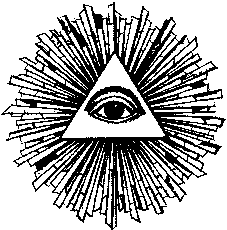
The One Eyed God
The God of power and dark ambition, the One Eyed One is worshiped only in secret aside from the Beastfolk of Crucible and the queer folk of Bloodshed. His disciples are routinely hunted and executed across Tha'Wuld, as He is the bringer of chaos.
The One Eyed God convinced Demos to turn on Oranth in an effort to place Himself above all the others. As the Gods fought Demos, One Eye tore through the Plane of Chaos and invited demons and beastfolk into the world, in a mad bid to create a new order out of the chaos. Though One Eye was eventually banished, so too were the other Gods, and Chaos has taken a firm root on the world to this day. Some whisper that this may have been One Eye's plan all along.
Those seeking to realize their ambitions sacrifice Man, Mer or Dwarf upon the alter of the One Eyed God. Worshipers mortal flesh walk Tha'Wuld upon their death, infecting others with undeath.

Ancestors
Ancestor worship is common among the peoples of Tha'Wuld, paying respect and worship to long dead kinfolk of great deeds. Nearly all are able to trace their lineage to a hero of the past. Traces of the dead of old remain in the world as spirits, offering guidance and wisdom, though not infallible.
Worshippers of ancestors sacrifice cows upon the mounds of their dead and may be granted luck throughout the year. Ancestor worshippers bury their dead in ancestral burial mounds.
The Free City of Wuldbreach
The city of Wuldbreach is the largest city in the world and has a far reaching history. Built around the Godswell, the city houses some five hundred thousand residents. Another five hundred thousand live outside the walls in he numerous townships and fields that feed the city. The majority of the population are farmers who make up the bulk of the army. These farmers vary in slaves and serfs that toil in the field, owners of small fields and pastures, to wealthy nobles that own large tracts of land.
The Copper District houses the many tradesmen and guilds that produce the city's goods for consumption and export. Slaves, merchants and journeymen toil and live in this district and make up for a large portion of the city's residents. Many Noble families whom made a fortune within the guildhalls hail from the Copper District.
The Godswell dominates the central Ivory District of Breach. A great alter where annual sacrifice determines which God's magic shall rule over the next year. It is the Godswell that have tempted invasion from outside forces and gives power to the Princes of the city, for they determine which God is be praised upon the Godswell. The Ivory District houses the many priests and acolytes whom serve within the various temples within the district. Nobles from the priesthood blessed by the Gods and affluent in Their magics often hail from this district.
The sprawling harbour of the city, the Silver District houses the shipwrights, sailors and merchants that call the city home. Warehouses, markets and the estates of wealthy merchants can be found here.
The Iron District is the home of the soldier class, the mercenaries and swornswords that fight and die for the nobility. Lowly sellswords and warriors of great renown alike call this district home. Stone towers, barracks and the castles of noble families line the streets of Iron.
The Gold District, high atop a great hill overlooking the city, is the sight of the Council Hall and palaces of the princes. Here the princes convene and enact laws and pass judgement. Nobles are welcome here to lend their voices and advise the Council of Princes.
Unlike much of Tha'Wuld, nobility is not viewed as a birthright. Wealth and deeds judge a man's stature. The people of Wulbreach live in a fuedal society with wealthy families making up the nobility and owning most of the land. Multiple guilds control the city's production and trade, and overseeing law and justice is the Council of Princes. Though a largely patriarchal society, women are held with respect, seen as the cool and thoughtful counterparts to emotional and reactive men. Women rule some families, guilds and have sat among the council and fight in defense of the city, though their service is not mandatory like men.
Some noble families employ the use and trade of slaves, though this practice is not widespread. Cotter's or smallfolk make up the underclass of the city, followed by Carls who own small parcels of land, then the nobility.
Applications
Shadows is a small scale game with a roster of 5-7 players fulfilling the roles of the princes, submitting orders and voting on laws and events. The rest of the players are regulated to the nobility pool, who may RP if they wish as a noble, free to petition and advise the Council of Princes. Nobles may also be included in events, serve the council with special assignments such as military commanders in times of war, diplomatic envoys or explorers or whatever the Council wishes.
The Council of Princes may be dynamic, as character players are likely to die often or voted from the council paving the way for a new noble. An active noble has better chances of securing a seat then one who doesn't follow the game.
Prospective players may fill out an application. I will choose the first council, from then on it's up to the Princes who rules among them. The city is in their hands and they are free to shape it as they like, and eliminate all who stand in their way.
Name:
Background: Guildmaster, Soldier, Trader, Farmer, etc
Race: Humans, egyptian-esque Issarians, Nord-esque Thurodans, and Germanic Goths all dwell in Breach, as well as Elves and Dwarves.
Professed Diety: Oranth (Combat), Issiris (Diplomacy/Trade), Wuld Mother (Stat Bonus), Hydra (Minor Bonus to Combat, Diplomacy, Stats.), Ancestors (Luck), One Eyed God (This God is worshipped in secret, PM me if you wish to honour him for plot power and publicly worship another.)
Bio:
How to Play
The game will take place across the four seasons, where the council will vote upon collective orders for the good of the city, followed by a personal order pm'd to me. Each player will have stats representing their personal wealth plus the city will have a collective wealth and population to give an indication of the council's success. Nobles may submit orders as well and receive a bonus roll should they be given a special office by the Council.
Every year, or four turns, the council must decide which deity they will sacrifice to upon the Godswell. Whomever they choose will have far reaching implications throughout the world, so choose wisely. NPCs will be abundant to offer counsel as the game goes on, as well as events to spark debate.
The Princes rule the city-state. Shift the geo-political landscape too much, however, and expect reprisal.
Wuldbreach is the holiest of cities, and the power of the Godswell is preciously sought by many forces of this plane and beyond. Beware.
Last edited:





